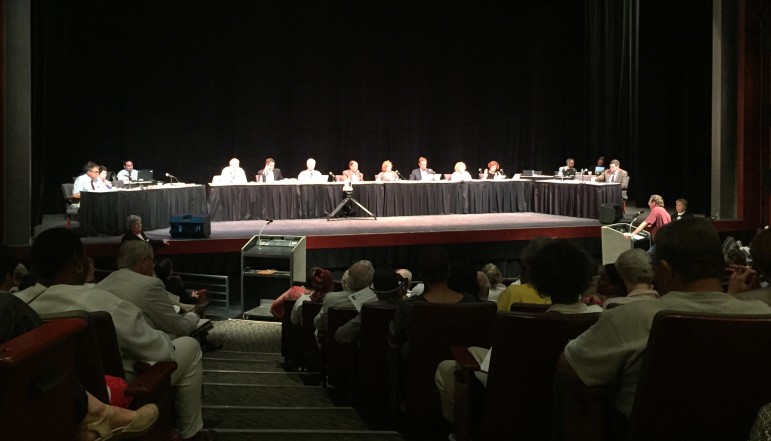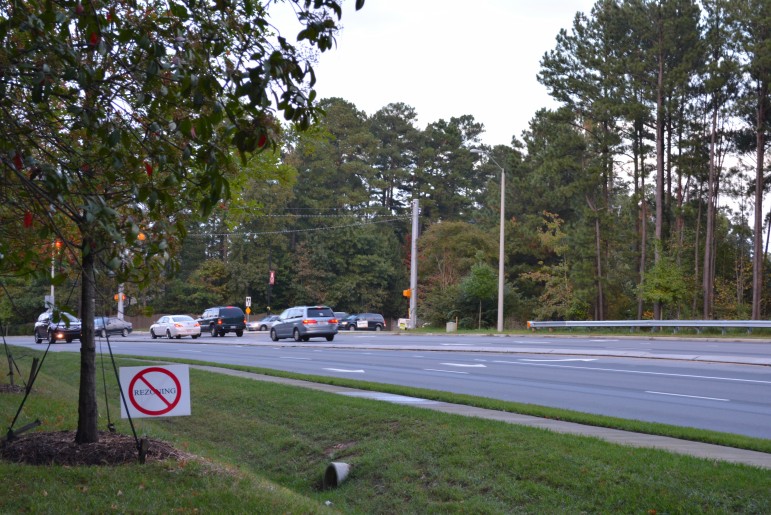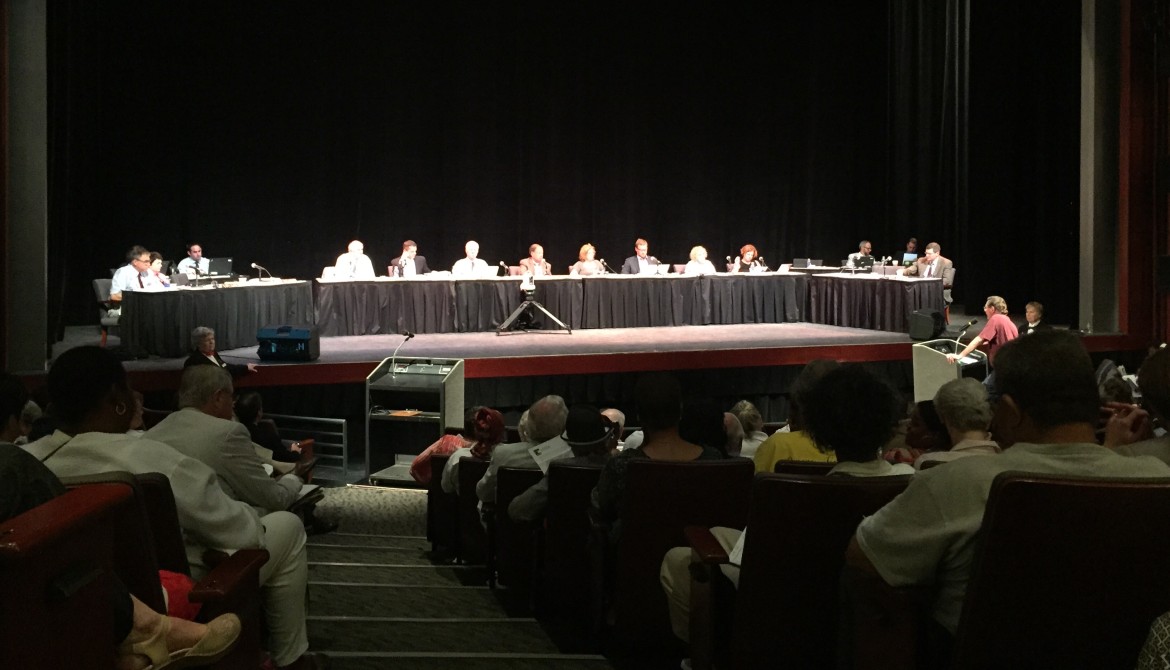Raleigh residents turned out in full force to fill the Duke Center for Performing Arts auditorium to voice opposition to the proposed citywide remapping that aims to add increased density to the city to deal with a rapidly growing population.
Those who signed up were allotted a two-minute opportunity to speak about the remapping, some voicing concern about their individual property and others denouncing the entire remapping as a whole.

James Borden / Raleigh Public Record
City council moved the public hearing to the Duke Energy Center after turnout last time exceeded capacity
“I’m afraid of this rezoning. I’m afraid of what it will do to the place where I belong,” said Raleigh resident Marianne Rollin.
The Unified Development Ordinance was initially adopted in 2013, spurred by the adoption of the 2030 Comprehensive Plan, which called for increased density in the city to accommodate the influx of people as Raleigh became a destination for people live.
It is an attempt to rewrite the old zoning code, adding a number of “mixed use” zoning districts, some of which act as transitions between different zones.
An oft-cited cause for concern among citizens is the neighborhood mixed-use zoning district, which allows for a wide variety of uses and often a height cap that is above the surrounding neighborhoods.
“The current NX is too broad and doesn’t protect our neighborhoods,” Donna Bailey said.
The remapping, which affects nearly 30 percent of properties within the city, rezones properties to allow for more density, which comes with a variety of increased impacts, such as noise, light, and traffic.
Several, smaller rezoning cases have been fought in the city’s planning commission and in front of city council.
One of these cases involved two properties at the intersection of Falls of Neuse Road and Dunn Road. Developers were looking to develop the properties into a large grocery store, which would add the previously mentioned impacts.
Although the neighborhood won that case, planners in the city of Raleigh still elected to rezone the properties to the same zoning classification that neighbors fought so hard against.

James Borden / Raleigh Public Record
Neighbors came out strongly against a proposed development off Falls of Neuse Road in North Raleigh
In response, the neighbors filed a valid statutory protest petition on the citywide remapping for that properties and spoke out at the first public hearing for the remapping against the proposed rezoning.
Citizens were also frustrated by the perceived lack of communication from the city regarding the rezoning. Many stated that they hadn’t been notified of the changes and that they hadn’t received the post cards that the city had mailed out to property owners adjacent to the properties that were to be rezoned.
“You should be coming to us,” Dick Hilliard said. “We shouldn’t be coming to you.”
While lawyers representing developers spent most of their time advocating for their clients, even Isabel Mattox, attorney, called for a more meaningful public comment period.
After the hearing had been closed, Mayor Nancy McFarlane told the remaining citizens in the auditorium that their voices were heard and would continue to be heard.
“We have heard all your issues,” she said. “I understand it’s very hard to say everything you want to say in two minutes.”
The city will hold a series of work sessions about the remapping, starting on July 27 at 4 p.m. in the council chambers. The first session will be to organize the various issues.
